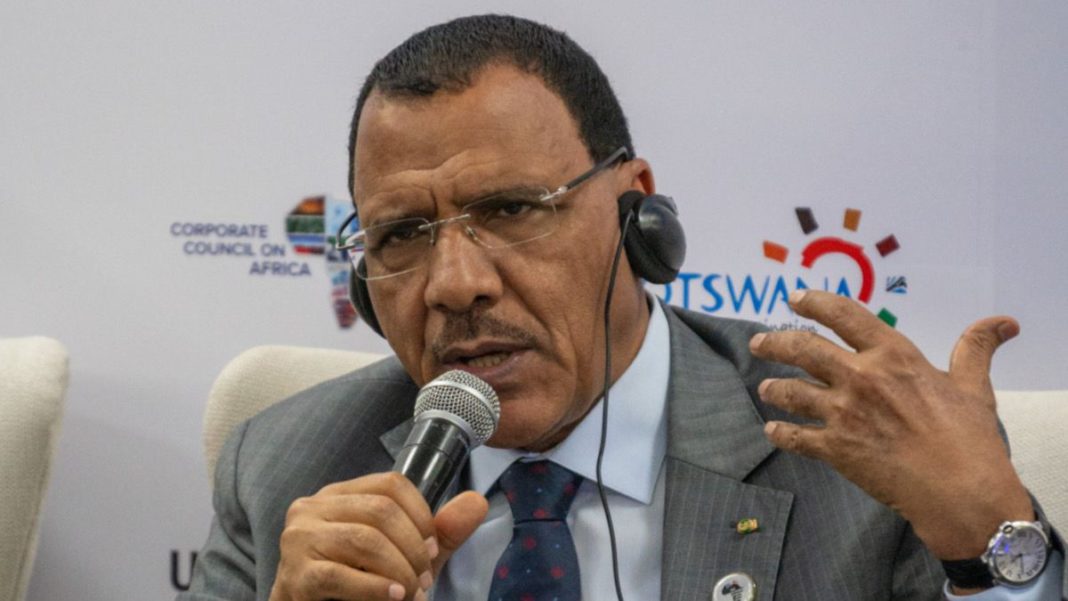NIGER: The military Junta that took control of Niger through a coup recently has announced its intention to charge former President Mohamed Bazoum with high treason due to his communications with foreign leaders and international groups.
The coup leaders detained Bazoum and disbanded the elected administration, leading to strong criticism from worldwide nations and neighbouring West African states, which have initiated a prepared military force that might potentially intervene to restore Bazoum to power.
At stake is not just the future of Niger—a significant uranium producer and ally of the West in the struggle against an Islamist insurgency—but also the influence of rival global powers with territorial ambitions in the area.
In a statement read out on state television late on Sunday, Colonel Amadou Abdramane, a spokesman for the Junta, stated that the military authorities had “gathered the necessary evidence to prosecute the ousted president…for high treason and undermining the internal and external security of Niger.”
Also, Abdramane stated that a campaign of false information was being waged against the Junta in an effort to “derail any negotiated solution to the crisis in order to justify military intervention… in the name of ECOWAS.”
The conditions under which Bazoum is being kept have alarmed the African Union, the European Union, the United States, and the United Nations, according to statements made by each organisation.
According to Bazoum’s political party, his family lacks access to doctors, clean water, or running water. Bazoum also told Human Rights Watch that his son needed to visit a doctor because he had a significant heart issue.
However, the Junta announced on Sunday that Bazoum had been consistently consulting his doctor, with his most recent appointment taking place on August 12.
“After this visit, the doctor raised no concerns about the state of health of the ousted president or members of his family,” said Abdramane.
ECOWAS, the primary regional group in West Africa, is set to advocate for further discussions with the Junta on Monday. The Junta has indicated a possible openness to seeking a diplomatic solution to the impasse arising from the July 26 coup.
On Saturday, the bloc’s parliament declared its intention to send a committee to meet with the Junta in Niamey, but it is unclear when that trip is expected to take place.
The African Union’s 55-nation Peace and Security Council is also scheduled to convene on Monday to address the situation in Niger, demonstrating the amount of worry about the repercussions of the region’s eighth coup in three years.
In Niger, where local al Qaeda and Islamic State affiliates have killed thousands of people and displaced millions more, U.S., French, German, and Italian forces are stationed.
As democracy falters, uncertainty rises, and leaders look for new allies to bring about order, Russian influence has increased.
Western powers worry that if the Niger junta follows Mali and Burkina Faso, which ousted the troops of former colonial power France after coups in both nations, Russia’s influence may grow.
Also Read: Antarctica’s Fragile Ecosystem under Siege as Climate Extremes Escalate



